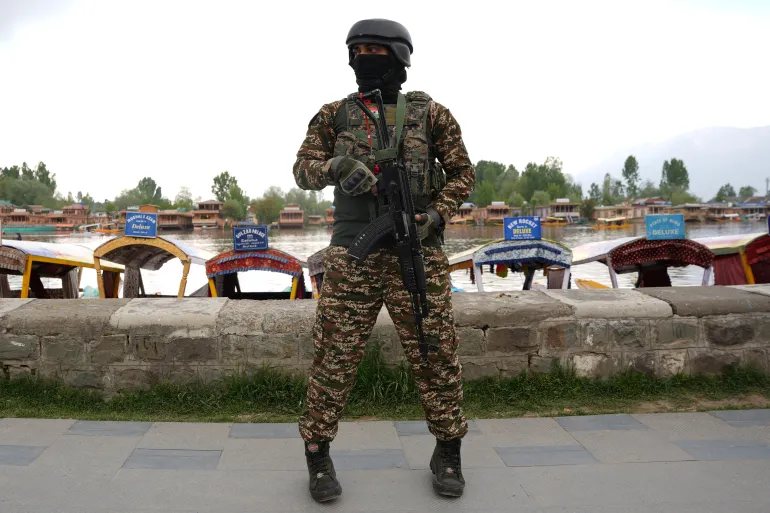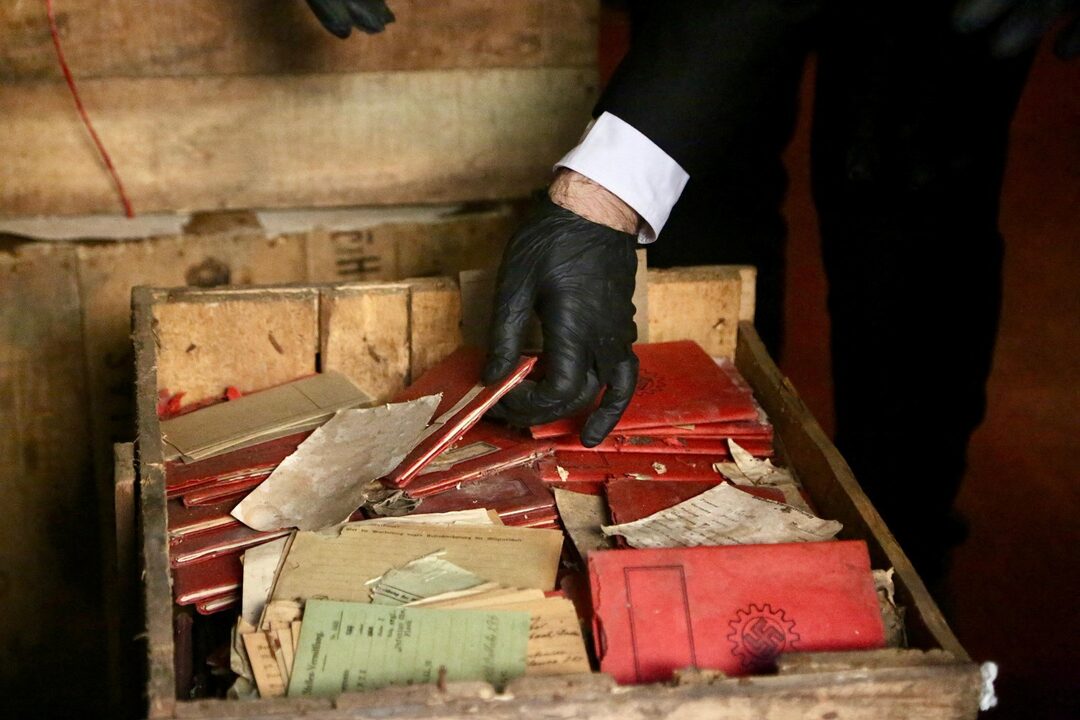Source: The World Standard
Tensions between India and Pakistan have escalated sharply following Tuesday’s deadly attack on tourists in Indian-administered Kashmir, with both nuclear-armed neighbors taking retaliatory diplomatic and economic measures.
On April 22, gunmen opened fire on tourists in Pahalgam, a popular resort town in Kashmir, resulting in the deaths of at least 26 people. The attack, claimed by the militant group The Resistance Front, has been described as the deadliest on civilians in the region in recent years.

A member of India’s security forces stands guard on the banks of Dal Lake in Indian-administered Kashmir after the Pahalgam attack [File: Sanna Irshad Mattoo/Reuters]
In response, India announced a series of actions on Wednesday, including:
- Suspension of its participation in the 65-year-old Indus Waters Treaty, which governs water-sharing between the two countries.
- Closure of the land border with Pakistan.
- Reduction of staff at the Pakistani High Commission in New Delhi.
- Expulsion of Pakistani military attachés.
- Revocation of visas for Pakistani nationals under the SAARC scheme, with a 48-hour deadline to leave the country.
Indian Prime Minister Narendra Modi chaired a cabinet meeting to finalize these measures, which were interpreted as a direct response to the attack and an implicit accusation of Pakistani involvement.
Pakistan, in turn, convened its National Security Committee (NSC) on Thursday, led by Prime Minister Shehbaz Sharif. Following the meeting, Pakistan announced:
- Suspension of its participation in all bilateral agreements with India, including the 1972 Simla Agreement.
- Immediate closure of the Wagah Border Post.
- Suspension and cancellation of SAARC visas for Indian nationals, excluding Sikh pilgrims.
- Declaration of Indian defense advisors as personae non grata.
- Reduction of staff at the Indian High Commission in Islamabad.
- Closure of Pakistani airspace to Indian airlines.
- Suspension of all trade with India.
In a communique issued after the NSC meeting, Pakistan warned that any disruption of its water supply would be considered “an act of war,” stating it was prepared to respond “with full force across the complete spectrum of national power.”
Pakistan’s Foreign Minister Ishaq Dar criticized India’s actions as “immature and hasty,” stating in a television interview, “India has not given any evidence [of Pakistani involvement in the attack]. They have not shown any maturity in their response. This is not a serious approach. They started creating hype immediately after the incident.”
The Himalayan region of Kashmir has been a longstanding flashpoint between India and Pakistan since their independence in 1947, with both countries claiming the territory in full but controlling parts of it. The two nations have fought four wars, three of them over Kashmir.
The current escalation raises concerns of a potential military confrontation, reminiscent of past crises between the two countries.



